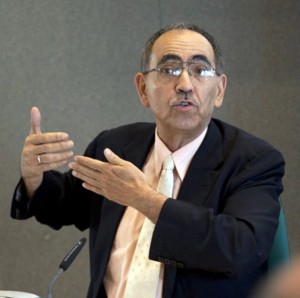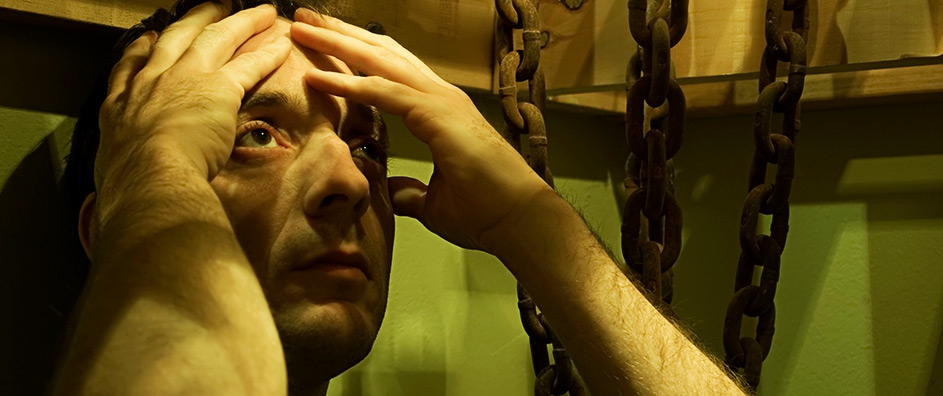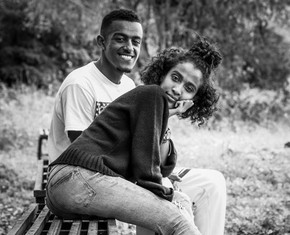The views expressed in our content reflect individual perspectives and do not represent the authoritative views of the Baha'i Faith.
Once, in El Salvador during the brutal civil war there, I met and had dinner with a remarkably honest and humble man, and our conversation had a powerful impact on my life.
His name is Ruben Zamora, and today he’s the Salvadoran Ambassador to the United States. When we met, though, the American government had refused to issue Ruben a visa to even visit the U.S. That’s because Ruben was seen as an opponent of the then-current government of his country, which at the time was an ally of the United States. Amazing how these things can change, isn’t it? Once forbidden entry to the U.S., he’s now the Ambassador.

Ruben wasn’t a guerilla or a violent revolutionary—in fact, he and his brother Mario, the former Salvadoran Attorney General, had both been Cabinet Members of the previous government, which was deposed in a military coup financed and supported by the U.S. Central Intelligence Agency. The new government, famous for its brutality and paramilitary death squads, then assassinated Ruben’s brother, bombed Ruben’s home in an unsuccessful assassination attempt, and arrested Ruben and tortured him.
He and I had a few hours together that night, and I decided to ask him about it. Ruben knew my history as a conscientious objector soldier and someone who helped put together medical relief missions to El Salvador, so he opened up and described those torture sessions to me in detail. I had the feeling he hadn’t talked about it before. I won’t repeat the details here, because they’re some of the most cruel, horrifying and disturbing things I’ve ever heard. Actually, just to tell them to other people frightens me—I’m afraid that just knowing about those inhumane acts would threaten almost anyone’s faith in the essential goodness of humanity. Some things, I’m convinced, are better left unsaid and unwritten.
I will say this: imagine the worst possible things one person can do to another, then multiply by a hundred. That will give you some sense of the scale of pain and torment Ruben went through. But the worst part, he said, was the psychological attempt to ruin his own faith in himself as a human being, and in the inherent spirituality of any human being. The point of torture, he said, is to destroy the soul.
Near the end of our intense and moving evening together, Ruben stunned me when he said that his greatest challenge in life would be to forgive his torturer.
To Ruben, his torturer’s blank, vacant and dead eyes—which he said he would never forget—represented all the people who had killed his brother, who tried to kill him and his wife and their five children, and who had tortured, disappeared and killed so many of his fellow Salvadorans while they attempted to work for social justice. Those eyes seemed completely inhuman, as if they had lost all their life. To him, those eyes represented what he thought of as the very worst part of the human reality.
I thought, and still think to this day, that Ruben’s acknowledgment of that remarkable task—to forgive his own torturer—represents the very best part of the human reality. If you can do that, I told him, you’re incredibly saintly, a spiritual giant, a true hero. He humbly rejected that, saying “I’m no hero—I just don’t want to carry around any hatred in my soul. Then I become like them.”
Our conversation taught me a great deal. I went away pondering the wide latitude that can exist in the human spirit, and how it can range from one extreme to the other. I thought about our station in a spiritual sense, hovering between our lower and our higher natures. I thought about how incredibly depraved people can become; and how high they can aspire. I thought about what true religion does for us, beckoning people to the kindest calling in their souls and asking them to love others, see the good in their fellow humans and forego all cruelty. I thought about forgiveness and mercy.
All of this thinking that my conversation with Ruben engendered reminded me of a passage about God’s prophets and messengers from Baha’u’llah in The Book of Certitude:
…consider the hardships and the bitterness of the lives of those Revealers of the divine Beauty. Reflect, how single-handed and alone they faced the world and all its peoples, and promulgated the Law of God! No matter how severe the persecutions inflicted upon those holy, those precious, and tender Souls, they still remained, in the plenitude of their power, patient, and, despite their ascendancy, they suffered and endured.
In like manner, endeavor to comprehend the meaning of the “changing of the earth.” Know thou, that upon whatever hearts the bountiful showers of mercy, raining from the “heaven” of divine Revelation, have fallen, the earth of those hearts hath verily been changed into the earth of divine knowledge and wisdom. – p. 44.
Can we forgive those who torture? Ruben, terribly tortured himself, seemed to believe in the possibility. Could you do it? Certainly Christ and Baha’u’llah and the other great messengers of God forgave their tormentors. They ask us to do the same—to turn the other cheek, to remain patient, to suffer and endure, to focus on the good in humanity and forgive the rest.
But beyond our personal forgiveness, should torturers be punished? Can justice and mercy co-exist? Should the torture of a fellow human being be a crime? What should the punishment be? How can the world stop torture? Tune in tomorrow and we’ll discuss those critically important questions.
















Comments
Sign in or create an account
Continue with Googleor